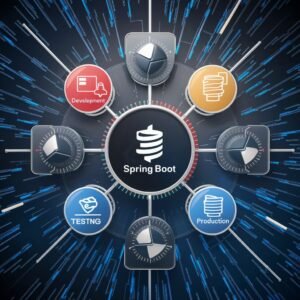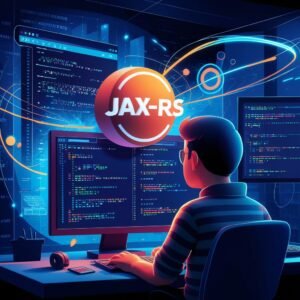Java For Kids
Starting with the basics of Java syntax and control flow, the ebook gradually progresses to more advanced topics such as object-oriented programming, file input/output, error handling, and more. Each chapter is carefully crafted to provide a solid understanding of Java concepts while keeping young readers engaged and motivated.
Introduction:
Microservices architecture has gained popularity for its ability to decompose complex systems into smaller, manageable services. One challenge in this architecture is maintaining consistency and tracking changes across distributed services. Event sourcing is a pattern that addresses this challenge by capturing and storing domain events as a log of immutable records. In this article, we’ll explore how microservices can leverage event sourcing to capture and store events effectively.
Understanding Event Sourcing:
Event sourcing is a design pattern where the state of a system is derived from a sequence of immutable events. Instead of persisting the current state of an entity, event sourcing captures every change to the entity as an event. These events are stored in an event log or event store, providing a historical record of all state changes. By replaying these events, the system can reconstruct its state at any point in time.
Implementing Event Sourcing in Microservices:
To implement event sourcing in microservices, each service emits domain events when changes occur to its entities. These events are published to a message broker or event bus, which then distributes them to interested consumers. Each microservice maintains its own event store, where it persists and retrieves events related to its domain. This decoupled architecture enables services to evolve independently while ensuring consistency and auditability.
Example:
Order Management System Let’s consider an example of an order management system implemented using microservices and event sourcing. Suppose we have two microservices: Order Service and Payment Service. When a new order is placed, the Order Service emits an OrderPlaced event, which contains the order details. The Payment Service listens for this event and processes the payment accordingly.
Order Service:
public class OrderService {
private final EventPublisher eventPublisher;
public void placeOrder(Order order) {
// Process order logic
// Emit OrderPlaced event
OrderPlacedEvent event = new OrderPlacedEvent(order);
eventPublisher.publish(event);
}
}
Payment Service:
public class PaymentService {
@EventListener
public void handleOrderPlaced(OrderPlacedEvent event) {
// Process payment logic
}
}
In this example, the Order Service emits an OrderPlaced event when a new order is placed. The Payment Service listens for this event and processes the payment accordingly. Both services maintain their own event store, where they persist and retrieve events related to their domain.
Benefits of Event Sourcing:
- Auditability: Event sourcing provides a complete audit trail of all state changes, enabling traceability and accountability.
- Scalability: Microservices can scale independently, as they are decoupled and communicate asynchronously via events.
- Fault Tolerance: Event logs are immutable and can be replayed to recover from failures or inconsistencies.
- Flexibility: Services can evolve independently, as they are not tightly coupled to each other’s internal state.
Conclusion:
Event sourcing is a powerful pattern for building scalable, resilient microservices architectures. By capturing and storing events, microservices can achieve greater flexibility, scalability, and fault tolerance. When combined with microservices architecture, event sourcing enables distributed systems to maintain consistency and auditability while allowing individual services to evolve independently. As you design and implement microservices-based systems, consider leveraging event sourcing to capture and store events effectively.
Programming #Ebooks #Kids #Coding #Children #TechEducation #STEM #ProgrammingForKids #Learning #Education #ChildrensBooks #ComputerScience #Technology #YoungLearners #CodingForKids #DigitalLearning #KidsBooks #EducationalResources #ProgrammingLanguages #FunLearning #parent #parenting #education #mom #ebook #programming #future #artificialintelligence #smart #job #python #datascience #kidsactivities #java #coding #eclipse #ai #chatgpt #tesla #machinelearning #deeplearning #chatbot #fyp #ecommerce #trending #instagood #photooftheday #picoftheday #instadaily #instalike #travel #nature #art #food #fitness #happy #motivation #explore #photography #instapic #style #life






